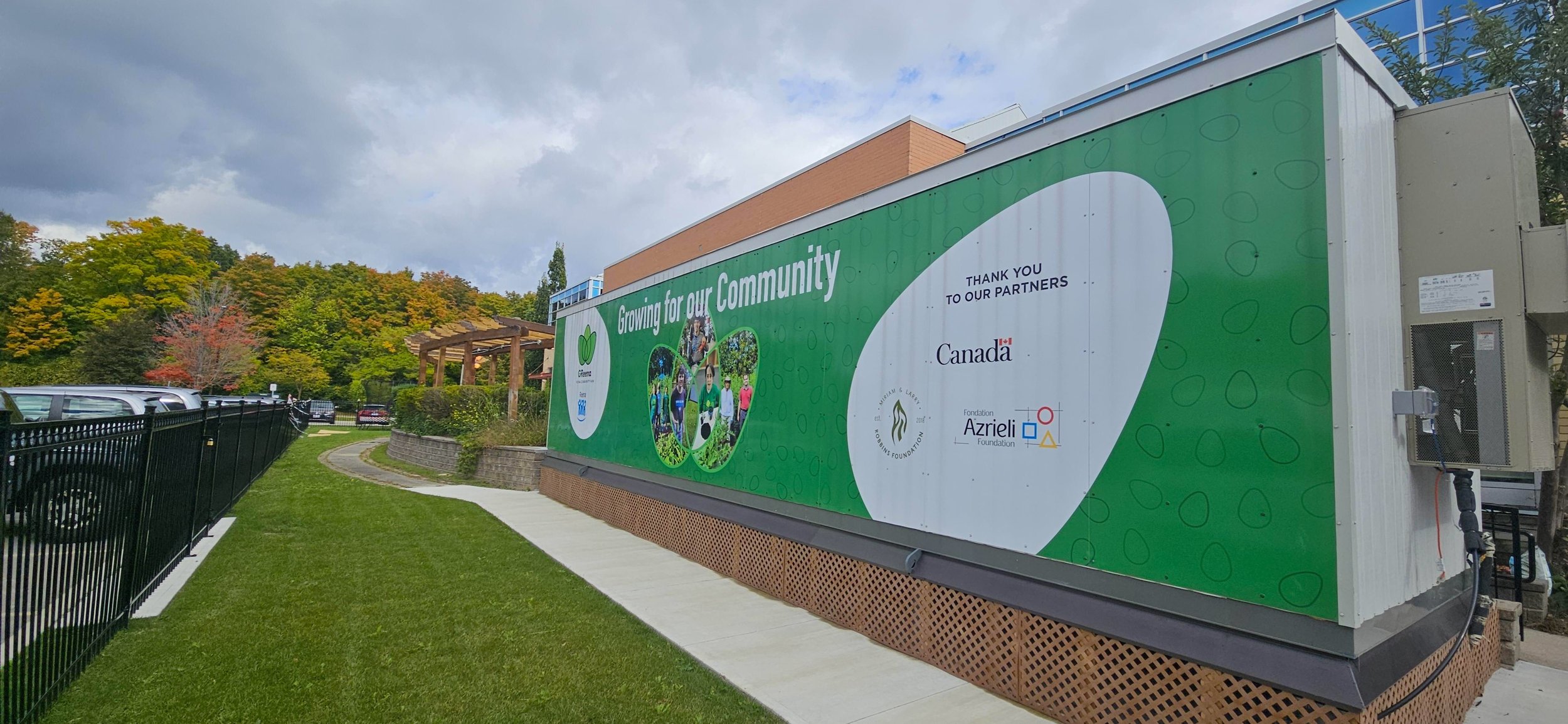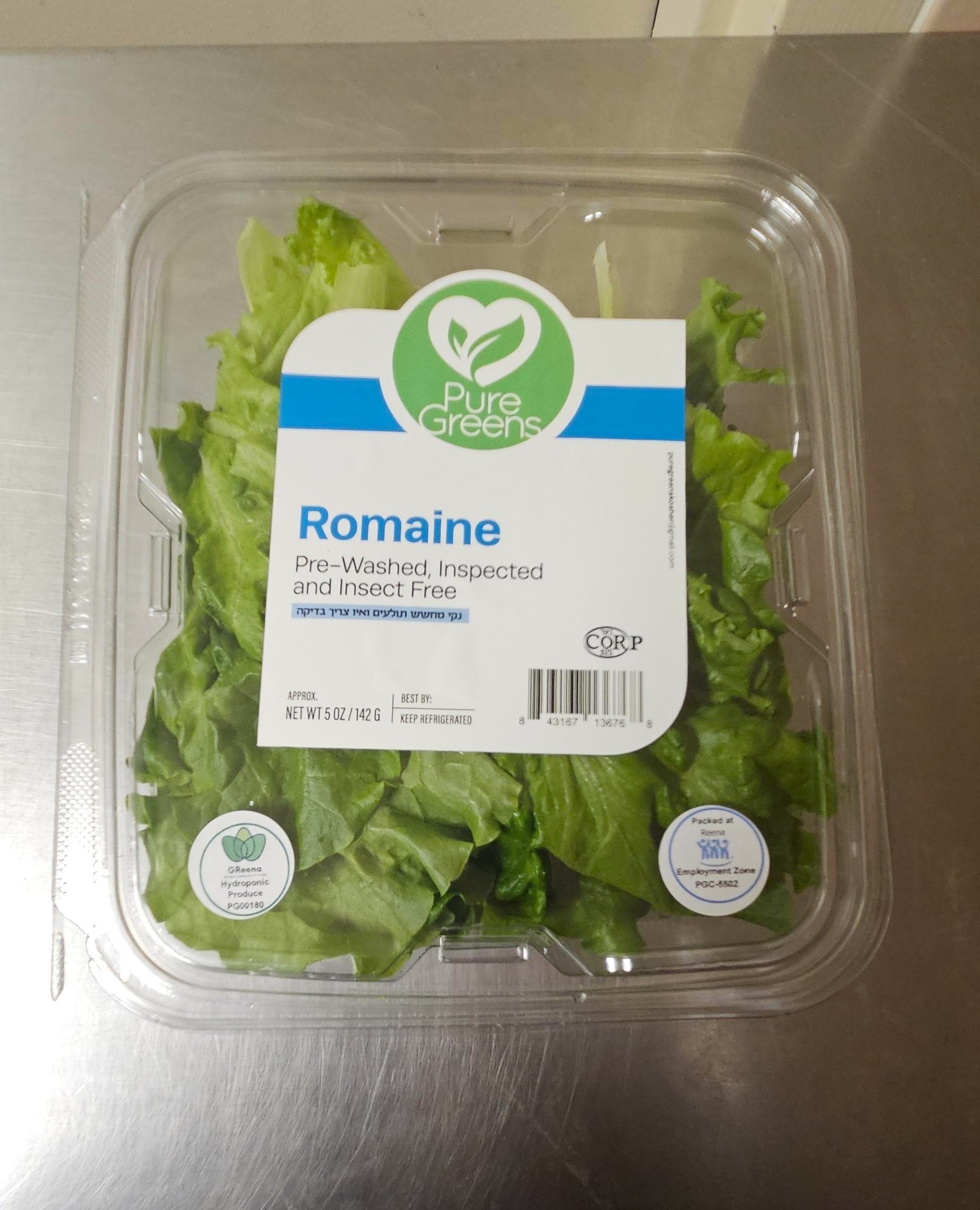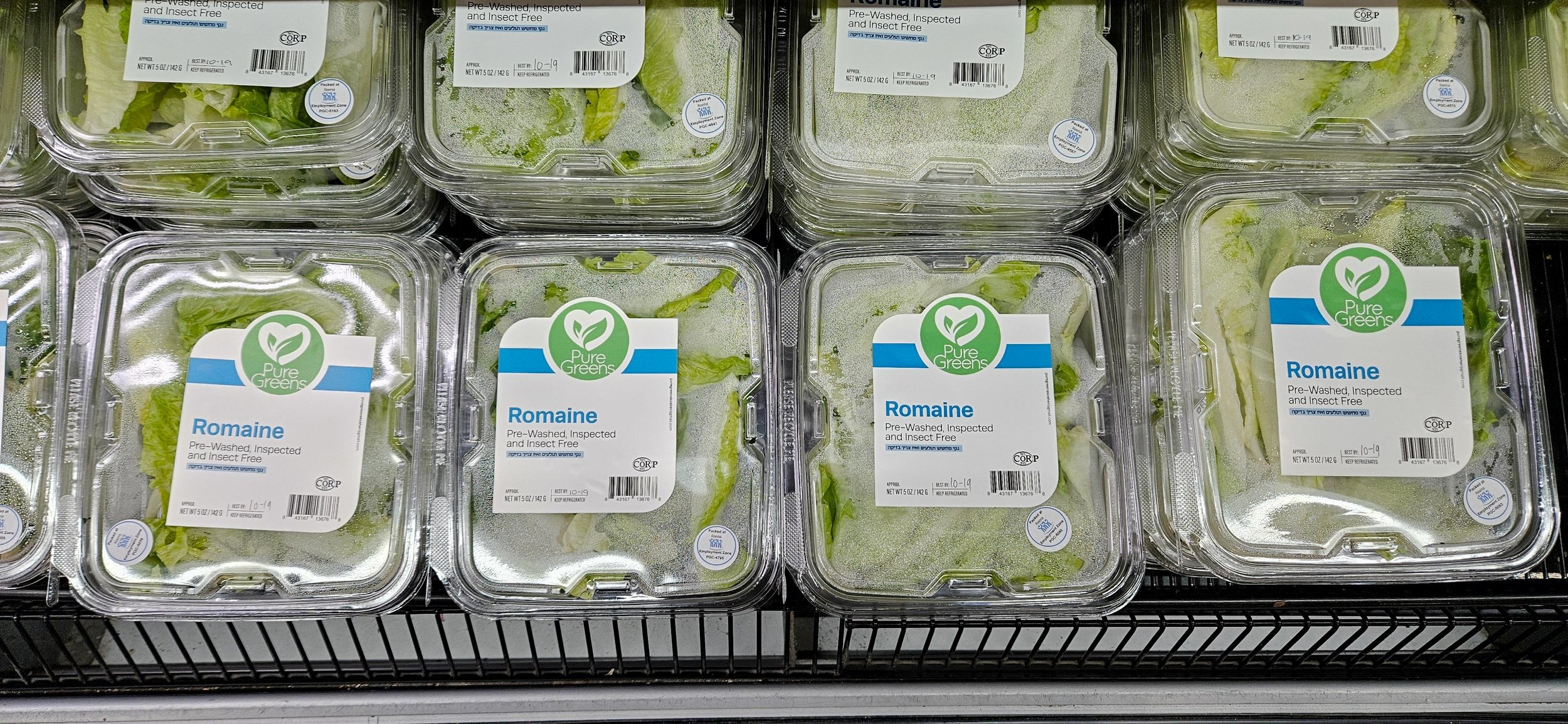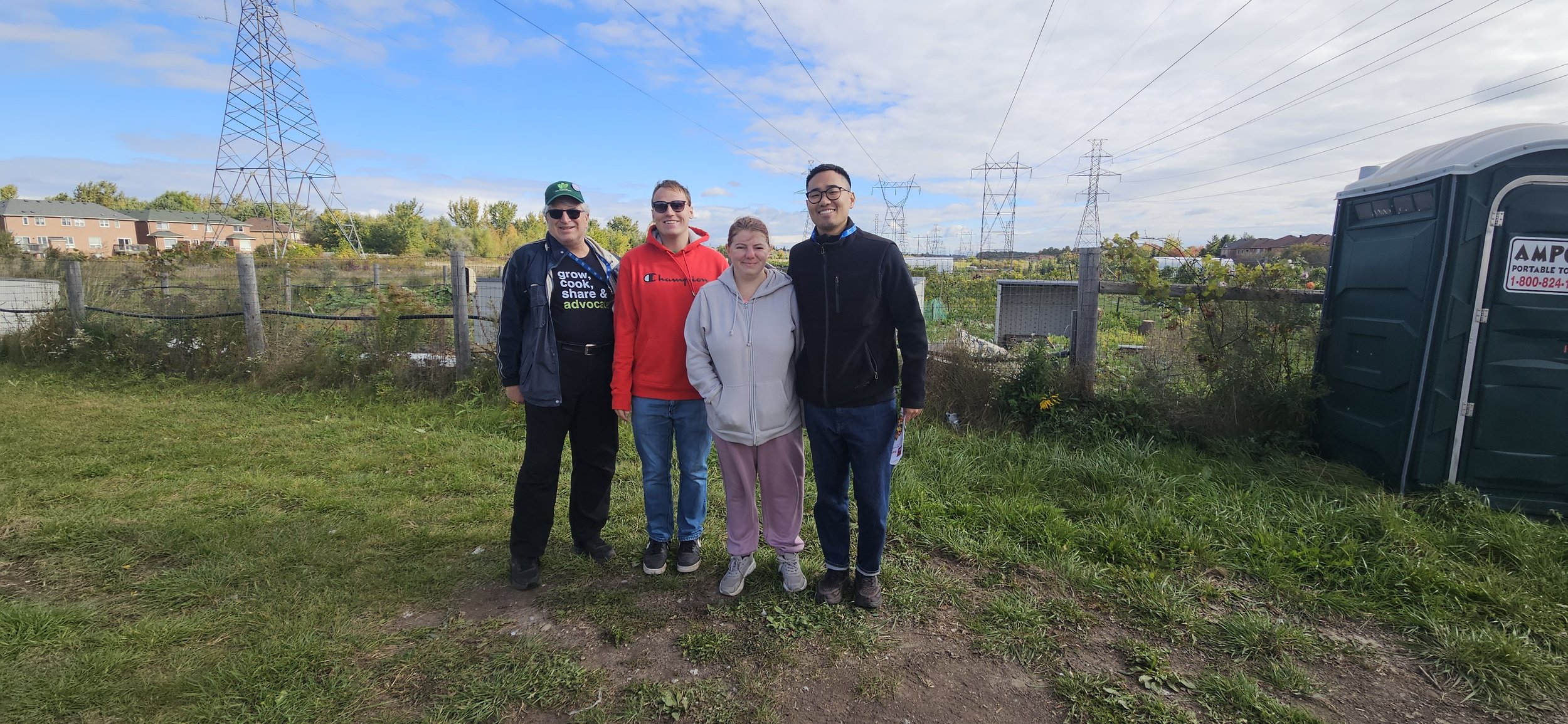Cultivating community: How Reena's Accessible Vertical Farm Grows Opportunity
Project at a Glance
Launched March 2023 in Vaughan, Ontario.
Project goal: Add a source of kosher produce, a new stream of revenue, and employment opportunities for Reena.
Distribution model: Produce is sold to kosher catering businesses on-site, to local restaurants, and to specialty grocery stores.
Impact: Reena and Growcer collaborated to create the first accessible modular vertical farm in Canada. They achieved Kosher certification, and their catering partner cooked 25,000 kosher meals by the end of 2023.
Operator: One lead grower runs the farm, supported by part-time employees hired from Reena Supported Employment Services.

The GReena farm arriving to its final destination, where produce travels less than 100 metres to the catering businesses inside.
“I’m hoping that with a little bit of care, a little bit of attention, and a lot of learning, we can grow this substantially to create greater employment and sustained food access and to increase the involvement of the community in Reena.”

Opportunity For Kosher Produce
Reena is a nonprofit organization in Ontario that provides comprehensive support services for individuals with diverse abilities. Its main activities include offering residential housing, employment opportunities, and community inclusion programs.
Back in 2021, Reena was looking for a way to grow produce meeting kosher requirements — which meant the food grown had to be insect-free. Growing food outdoors wasn’t meeting the high standards required for certification, because there were too many opportunities for bugs to get into the produce.
The Reena team paid a visit to Growcer’s research and development (R&D) farm in Ottawa to see if indoor hydroponic farming was the key to growing food to meet kosher standards. The two teams decided to test out if it was possible by kosher testing produce samples from the R&D farm – a farm without any special modifications. The produce achieved a 40% pass rate and was a great starting point for the project to build upon.
To make up the difference, Reena and the COR Kosher Certifying Authority worked together to design a few extra modifications that would help the farm become more impervious to pests so it could meet kosher certification specifications. It also went beyond produce, the farm would also open the door to employment opportunities and a new stream of revenue for Reena.
“There were a lot of things to consider because the kosher aspect hadn't really been implemented anywhere else,” recalls Sandy Stemp, Reena’s chief operating officer. “We knew we would have to adapt and modify and test and practice to see if it would work. The team really felt strongly that this was an amazing project.”
About Reena
Reena manages housing facilities, such as the Lou Fruitman Reena Residence, designed to support individuals with developmental disabilities, mental health challenges, and physical disabilities. The organization provides both independent and shared living arrangements, as well as complex healthcare and respite services.
Rooted in Jewish values but open to all, Reena’s programs focus on fostering independence, personal growth, and inclusion in a supportive environment. The organization works closely with families, community partners, and government bodies to ensure holistic support for individuals with diverse needs.
In addition to housing, Reena offers employment and training programs to help individuals develop job readiness and career skills, with many participants securing paid employment in the competitive labor market. Reena’s services also extend to day programs, recreational activities, and advocacy efforts, ensuring individuals with diverse abilities can participate fully in their communities.

You can find GReena produce in smaller and speciality grocery stores along Bathurst Street.
Creating Canada’s First Accessible Modular Vertical Farm
Before installation in March 2023, Growcer worked closely with Reena to ensure the project would meet kosher certification standards while being able to support everyone in its community.
Although Growcer farms are designed as closed systems, the movement of operators in and out creates the potential for insects to sneak inside. “For a long time, one of the biggest problems was bug infestations in hydroponically grown leafy greens,” says Fred Winegust, project specialist with Reena. “Working together with a set of rabbis and with Growcer, we reengineered the interior.”
Measures included:
Keeping the air curtain at the farm's entrance turned on to blow a barrier of air when the door is open and prevent insects from entering
Encouraging operators to maintain good hygiene and always use what we call plant protective equipment, or PPE
Limiting the number of people entering the farm daily
Keeping up with regular farm maintenance to prevent excessive algae growth and potential fungal development

The Osiris Access Farm is modified for accessibility with a sliding door, foldable tables, and room in the back to turn around.
Modifications for Reena’s Farm
In keeping with Reena’s 50-year track record of inclusivity, Winegust also saw an opportunity to upgrade the farm’s interior to make the space easier to navigate for people with mobility challenges.
“When we first saw the container, I said, ‘This is wonderful, but could we ever support one of our individuals who may be living in a wheelchair?’” Winegust explains.
Vertical farms can be narrow spaces with many hard-to-reach corners making it difficult for those with mobility needs to be an operator.
Growcer, working with Reena and the Rick Hansen Foundation, made some important upgrades to Reena’s farm. The modifications included adding space in the back of a farm for a wheelchair to turn around, lowering table heights, and adding an automated sliding door. The result was the Osiris Access farm, the first accessible modular vertical farm in Canada.
“Those sliding doors are the first of their kind in the Growcer portfolio,” Winegust says. “We decided to sacrifice growing space to widen the aisle-way in case we had the opportunity to have an individual who lives in a wheelchair or has to work in a wheelchair to actually be able to go through the container and turn around.”
Results

Once the farm was installed, the “GReena” project was ready to grow.
In September 2023, a Reena board member who uses a wheelchair took a tour through the farm and declared the modified design a success. By October, two graduates of Reena’s employment program had started their new positions in the Growcer farm.
To pass kosher certification, the farm needed to submit several batches of produce over the next several months. With each testing phase and subsequent pass, Reena was setting the bar for a bug-free growing environment. After months of rigorous testing, Reena earned its kosher certification for hydroponically grown greens, which was a first in Canada!
The impact also went beyond produce providing a range of benefits for the community:
Year-round production of produce: The farm's controlled environment allows for leafy greens in all seasons.
Employment and skill development: The farm created jobs and volunteer opportunities, empowering individuals with disabilities through meaningful work in an accessible environment. By December 2023, the Reena Employment Zone was in full operation with 2 tenants both hiring and training Reena Supported Employment Services graduates to work in the kitchen and packaging centre.
Sustainable practices: The smart farm with its automations and efficient resource use help contribute to environmental sustainability. The distance from growing to distributing the final food products has been reduced to mere steps, eliminating lengthy transportation and logistics issues.
Kosher certification: The farm team achieving kosher status was a major milestone requiring meticulous attention to standards and innovative solutions to prevent contamination.
Spotlight
Read Agriculture Canada’s feature on Reena’s farming projects: A bountiful garden: Sophie Wood grows vegetables and confidence at a local community farm

(Left to Right) Fred, Anthony, Sophie, and Aki who are part of the team that operates Reena's Growcer farm at the Malvern Community Farm.
Impact: The Bigger Picture
“Think about the bigger opportunities and outcomes that this project is going to create in terms of employment, engagement, volunteer opportunities, connecting with individuals, enjoying locally grown produce year-round, and supporting environmental sustainability”
The GReena project was driven by a combination of necessity and vision. The idea was to create a reliable source of kosher produce while also providing employment opportunities for Reena's clients. The Growcer farm is an addition to GReena’s outdoor community farm and training and employment partnerships.
"Think about the bigger opportunities and outcomes that this project is going to create in terms of employment, engagement, volunteer opportunities, connecting with individuals, enjoying locally grown produce year-round, and supporting environmental sustainability,” notes Viji Hariharan, chief financial officer of Reena. “While there are financial savings, the bigger outcomes are individual engagement and employment."
Now managed by a dedicated lead grower and supported by two graduates hired from the Reena Supported Employment Services program, the farm grows a variety of produce in the heart of the city year-round. The produce makes it way to catering businesses, local restaurants, and specialty grocery stores. To maintain its kosher certification, the farm undergoes regular spot checks of its produce and procedures.
Most importantly, the farm has created a space of inclusivity, learning, and growth for the entire Reena community. Bryan Keshen, Chief Executive Officer of Reena, adds: “I'm hoping that with a little bit of care, a little bit of attention, and a lot of learning, we can grow this substantially to create greater employment and sustained food access and to increase the involvement of the community in Reena.”
Throughout this process, Growcer's support has been instrumental — from the initial setup to ongoing assistance. For nonprofits and businesses looking to duplicate Reena’s success, this case study offers a blueprint: Start with a clear goal, partner with experts, and remain committed to inclusivity and sustainability.
Get Started on your project today.
